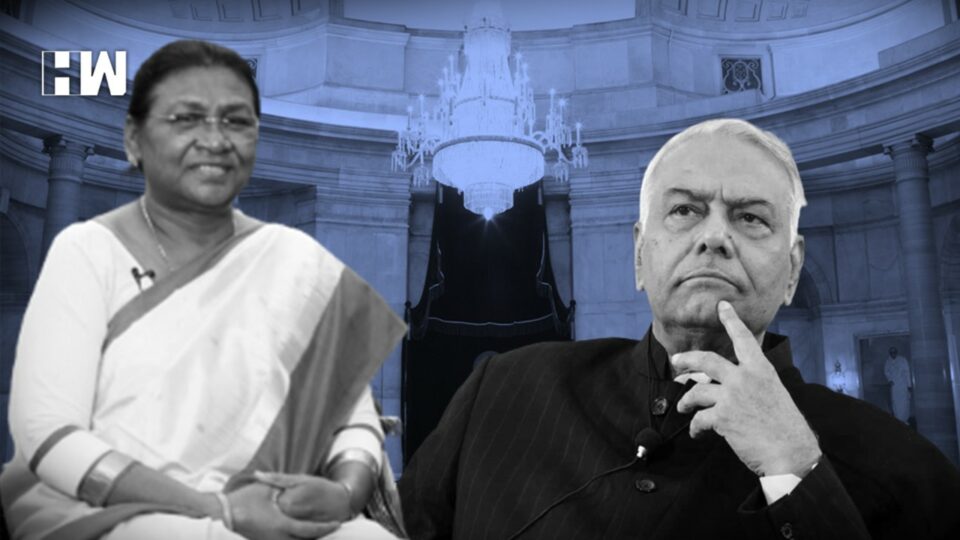Unlike the Prime Minister who is elected by the LokSabha MPs who are in turn elected from among the people, the President of India is elected through an electoral college.
New Delhi: It’s July 18th today and the election for the presidential poll is underway. Votes are being cast by MPs and MLAs at Parliament as well as different state legislative assemblies. Prime Minister Narendra Modi and former PM Manmohan Singh have already cast their votes. Several other MLAs and MPs are casting their vote to elect the next President of India.
In all, around 4,800 MPs and MLAs will cast their votes till 5 pm on Monday to elect the 15th President of India. The counting of votes will take place on July 21 while the next President will take oath on July 25.
We all know that there are two candidates in frey for the Presidential post. Let us understand everything about the Presidential Election in this explainer:
Candidates
NDA’s Candidate Draupadi Murmu and Opposition Candidate: Yashwant Sinha. Murmu is a tribal leader from Odisha. She has been associated with Bharatiya Janata Party, throughout her political career and also held several key roles in the organization. Before being named as the presidential candidate, she was governor of Jharkhand and completed her 5-year term.
On the other hand, the Opposition’s candidate is Yashwant Sinha. A veteran politician who was a minister in the first NDA govt led by Atal Bihari Vajpayee is contesting against Murmu for the top post. Once a senior leader of the party, Sinha grew critical of the BJP during the Modi era and left the party to form his own forum called Rashtra Manch. Last year he joined Mamata Banerjee’s TMC. Ahead of the Presidential election, he left the party.
Who has more support?
Both presidential candidates were touring different states since the election was announced to seek support from different political parties. Most of these parties have already announced who they will support. With 44 parties backing her Draupadi Murmu hopes to gain 60% votes whereas Yashwant Sinha has the support of 34 parties.
Parties supporting Draupadi Murmu: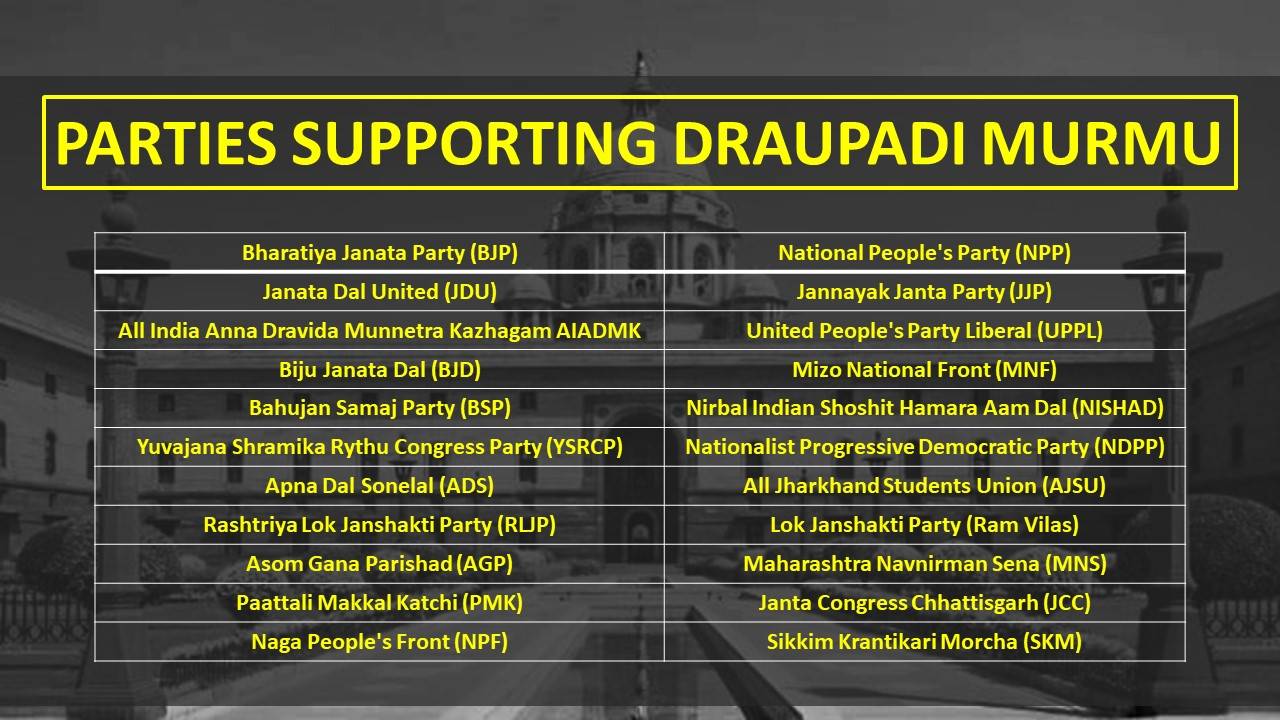
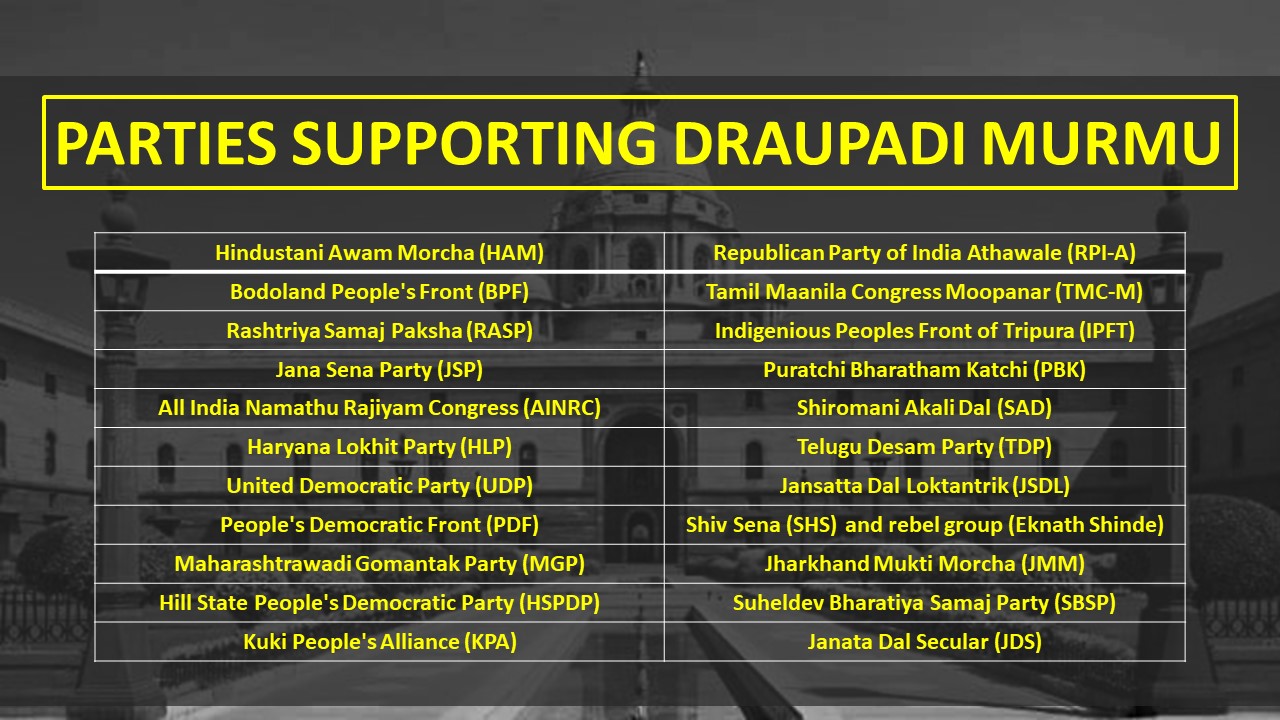
Parties supporting Yashwant Sinha:
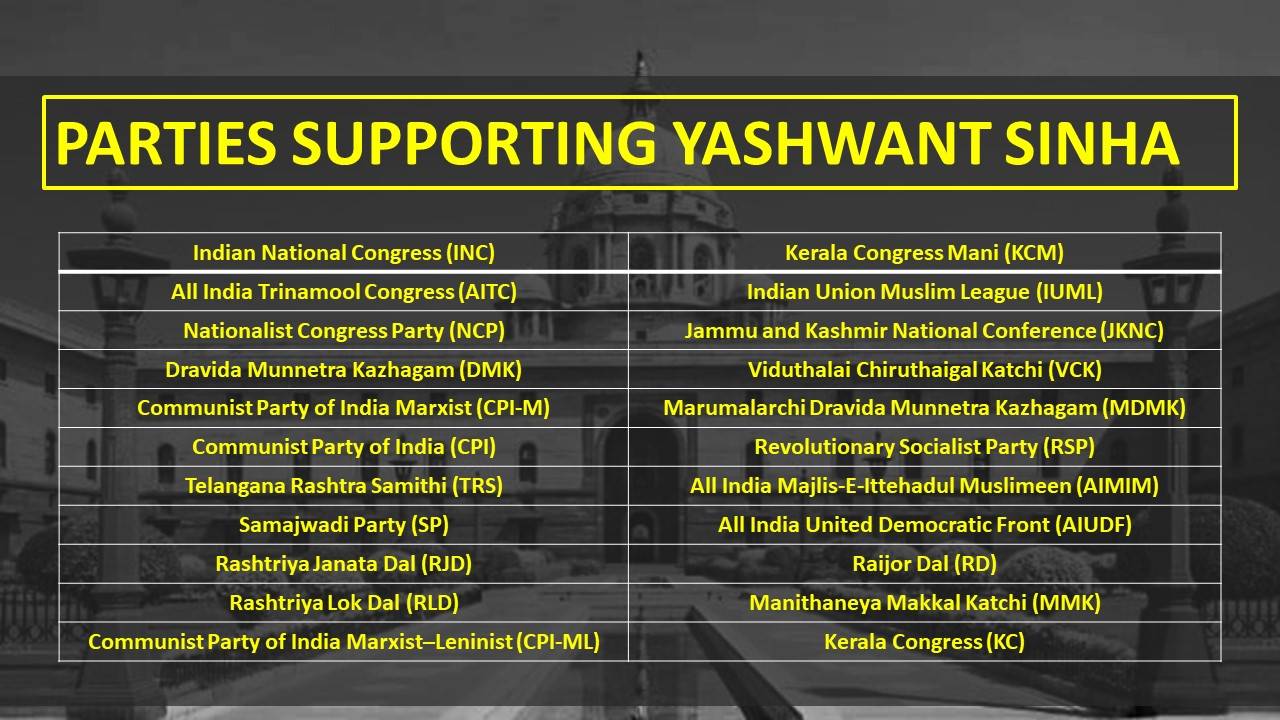
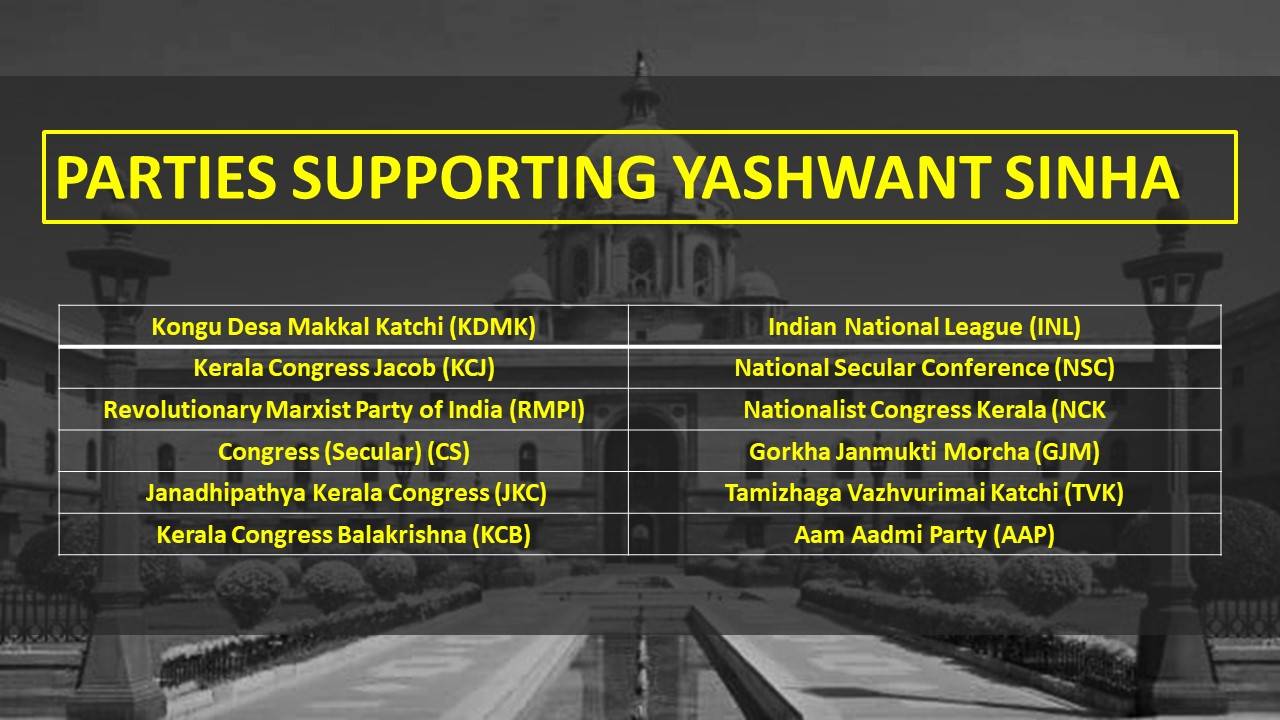
How is the President of India elected?
Well, the process of electing the president of India is complex and unlike General or Rajya Sabha elections. Unlike the Prime Minister who is elected by the LokSabha MPs who are in turn elected from among the people, the President of India is elected through an electoral college.
This electoral college consists of members of parliament: from both the houses that are Lok Sabha and Rajya Sabha. The nominated members of the Rajya Sabha cannot vote in this election.
Apart from MP’s, MLAs of all the state legislative assemblies are eligible to vote. Here again, MLCs cannot vote.
This was about electors. The process gets a little more complex from here on. Not every member has the same value for his vote. MPs have different values for their vote, whereas MLAs have different values.
Also Read: “Secret Ballot, Elect Me To Save Democracy”: Yashwant Sinha Urges Political Parties On Presidential Election
How is the value of the vote counted?
The formula to calculate the value of votes for MPs is different from that of MLAs.
The formula for MPs:
Total Value of Votes of All MLAs from all states/Total number of elected members of the parliament
The value of an MP’s one vote is roughly 700.
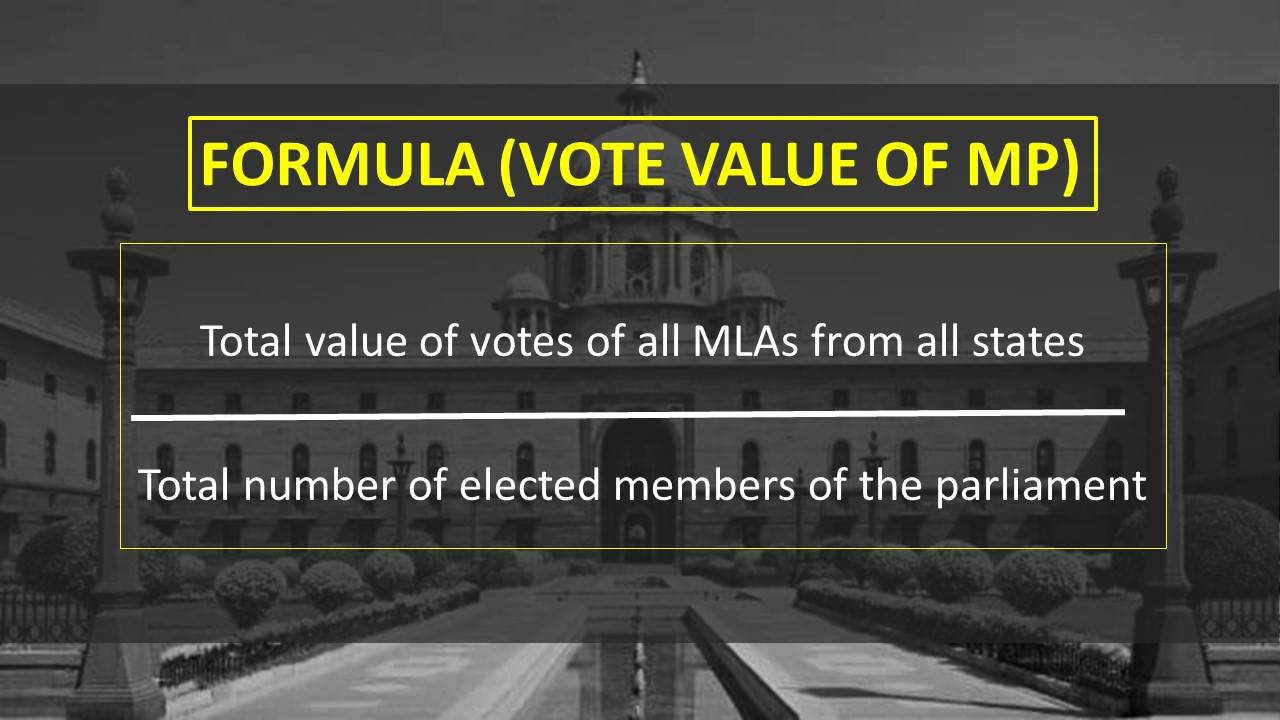
Formula For MLAs:
Total Population of the state/total number of elected members of SLA x 1/100
That means the vote value of an MLA depends upon the state’s population. As the population varies from state to state, the vote value varies.
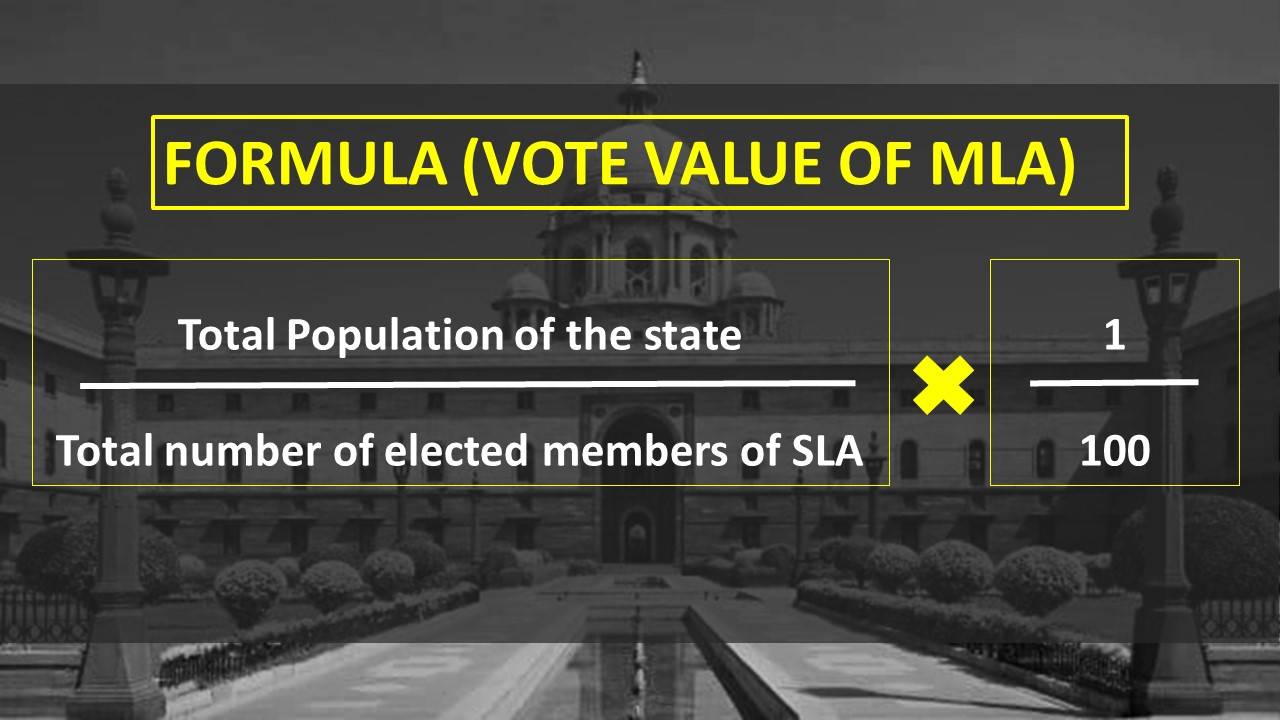
According to recent calculations:
An MLA in Uttar Pradesh, has a vote value of 208, whereas in Jharkhand and Tamil Nadu it is 176. In Maharashtra, it is 175. In Sikkim, the value of vote per MLA is seven, while it is nine in Nagaland and eight in Mizoram.
The total value of votes is 10,86,431, of which the votes of MLAs are 5,43,231 and the MPs are 5,43,200.
A candidate needs more than 50% of the votes of the electoral college to win the election.
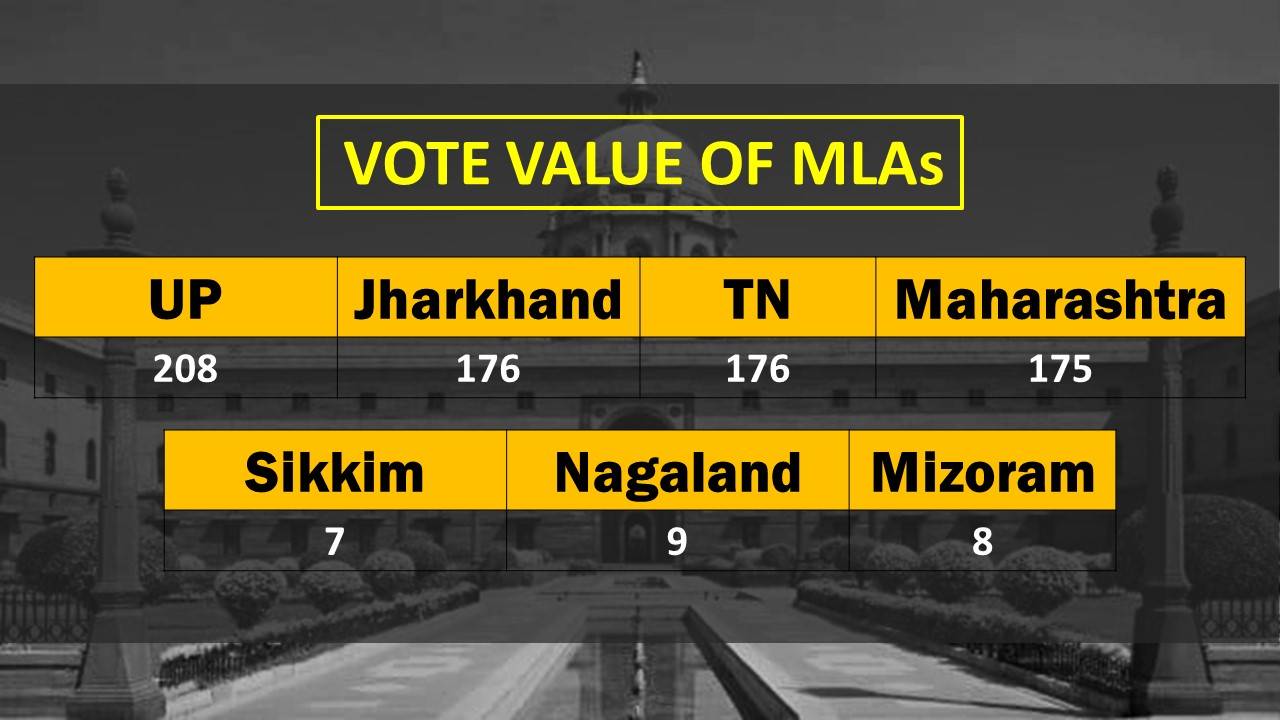
Although India is a parliamentary democracy, the President of the country too wields certain overriding powers. The president has several executives as well as legislative functions. For a bill to become law, the president’s assent is necessary. Thus, the election of the President assumes importance.
As an independent media platform, we do not take advertisements from governments and corporate houses. It is you, our readers, who have supported us on our journey to do honest and unbiased journalism. Please contribute, so that we can continue to do the same in future.

